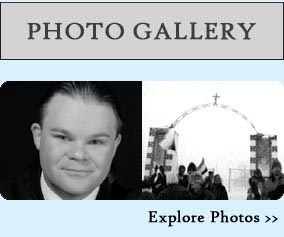EDUCATION

As an educator who has experienced racism and homophobia first hand, Dr. DaShanne Stokes combines research and over a decade of experience in higher education to provide insightful analysis of racism, LGBT equality, and other issues impacting public education to improve learning, strengthen communities, and foster diversity and inclusivity.
For journalist inquiries, or to inquire about booking Dr. Stokes for a television, radio, or other media program, please email media (at) dashannestokes (dot) com.
Articles About Education
The Chronicle of Higher Education
Sage, Sweetgrass, and the First Amendment**
**Reprinted 2001-2008 as a chapter in The University in Your Future, edited by P. M. Lowentrout. Long Beach, CA: California State University, Long Beach (2001: Pp. 61; 2002: Pp. 33; 2003: Pp. 28; 2004: Pp. 20; 2005: Pp. 40; 2006: Pp. 29; 2007: Pp. 72-73; 2008: Pp. 71-72).
The Huffington Post
We Need to Talk About Being #NativeOnCampus
Fighting Discrimination, Discovering Who We're Fighting For
Diverse
The Advocate
Boy Scouts, Time For A New Lesson
Invited Talks and Lectures
"Smoke Signals."
November 9, 2005. Emmanuel College, Boston, MA.
"The Culture of Memory: The Socio-Cultural Uses and Misuses of Memory."
October 25, 2005. Emmanuel College, Department of Psychology, Boston, MA.
"The Fellowship of Fires."
Stokes, DaShanne et al. March 17, 1998. The University of South Dakota, School of Education, Vermillion, SD.
Teaching Publications
Writing Empirical Research Papers
Writing is a common activity in academia for students and professionals alike. Here are a number of the considerations that many journal reviewers and professors have in mind when reviewing empirical manuscripts. This checklist is by no means comprehensive and is directed at helping to shape student writing activities so as to generate quality empirical research papers.
Creating and Challenging the Status Quo
Rules that sustain many forms of domination are typically created and imposed by the state. Laws can be used to stabilize power, especially by means of the state's bureaucratic apparatus and by means of its coercive resources for monitoring and enforcing compliance. But domination and effects of rules are never total--people have agency and can resist. In this activity the class will be challenged to find ways to both support and resist a law of the class's choosing.
State Formation and the Challenges of Creating a New Country
Creating a new country along with a state apparatus to run it is tricky business. But what if you were challenged to create a new country yourself? How would you do it? In this activity students are challenged to draw upon course material on state formation and the emergence of new nations and states to symbolically create new countries and states themselves, gaining greater understanding of course materials and their real world applications in the process.
Preparing for Applied and Conceptual Exams
This hand-out guides student activities as they go about the business of preparing for applied and conceptual multiple choice exams. It also serves as an excellent study guide for students well beyond coursework in political sociology.
Political Sociology Syllabus
Political Sociology is centrally concerned with political relations, policies, and practices as well as larger questions of conflict, cooperation, power, influence, and authority. Drawing on innovative methods of instruction, class discussions, and group activities, this course aims to provide a fun and intellectually stimulating environment in which to survey the dynamic field of political sociology, including: the nature and roles of power, influence, and authority; citizenship, nationalism, the state and nation; the sociology of law; class, the power elite, and political economy; transnational processes, imperialism, and hegemony; social movements and social change; gender; race, culture, and identity politics; and a wide array of other topics that impact our world today. (pdf)
Please feel free to share this collection of articles and interviews using the following shortened link: http://bit.ly/2aZ4P7s.




